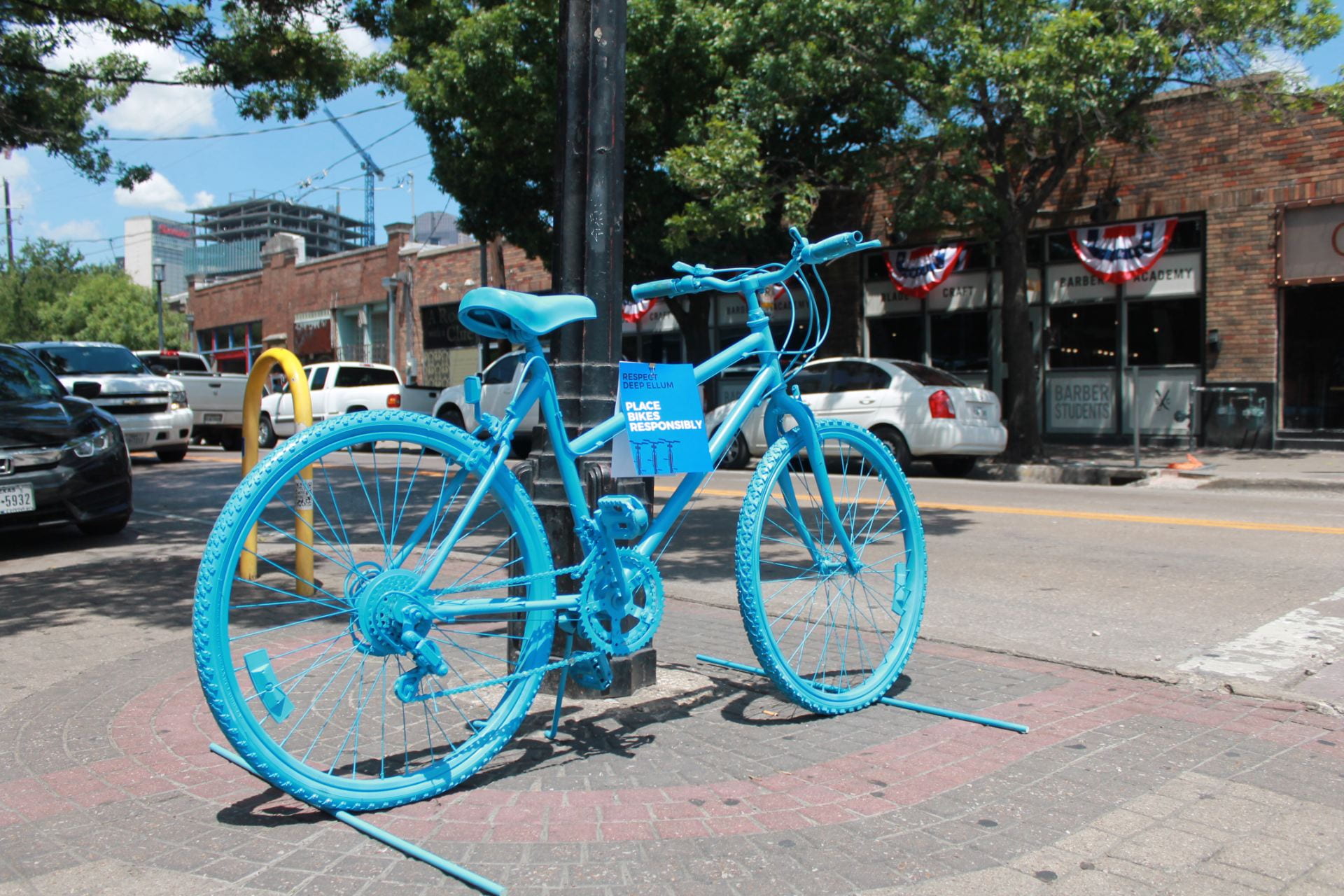Studio Summer 2018
What is the future of dockless bike-share in Dallas?

In the fall of 2017, more than 100 bike share companies were being operated in the most densely populated cities such as Washington D.C., New York City, San Francisco, and Houston. In those cities, docked and dockless bike share had become a part of the urban fabric and afforded many of its citizens a new form of viable transportation outside of a car and public transit.
Dallas has historically been a car-centric city with urban sprawl. Dockless bikes were getting a mixed response as both useful and a nuisance. Negative media attention was growing portraying dockless bikes as messy and annoying while stories were emerging that bikes were being used for pranks causing a nuisance rather than a service.
TEAM:
Matthew Barkley | Marlene Gomez Islinger| Rae’Van Parson
The proposed solution established the Dallas Bike Force to promote predictability for bikes in the city and ultimately serve the citizens. By creating reliability for bikes, the Dallas Bike Force would generate sustainability and mobility for Dallas and make the city a better place.
The Dallas Bike Force would be grounded in six guiding principles:
- Create place for bikes in Dallas, remembering that creating place is more than just making space.
- Encourage mobility by establishing places based on user input.
- Fill communication gaps between all five stakeholders in the city.
- Create a human presence in an industry that is perceived as faceless.
- Enforce place through presence, not through power.
- Prioritize visual presence over team size.

TEAM:
DiMitri Higginbotham | Campbell Konrad | Ariel Martin | Laura Reed
This team learned that the Dallas bike infrastructure was 20-30 years behind peer cities with 75 percent of Dallas’s bike lanes being shared with cars. Additionally, they found unsafe passages between disconnected bike paths which they called “pinch points.” Pinch points were putting cyclists, pedestrians, and drivers in danger. With this focus, the team developed the Dallas Pinch Point Connection Proposal aimed to physically connect the gaps in Dallas’s existing bike infrastructure, starting with two locations.
This proposal would include pedestrian and bicycle safety enhancements such as traffic signals, signage, sidewalk pedestrian and cyclist division, safe crosswalks, and bike lane connections. By addressing these pinch points, the city could unite its existing bike infrastructure while enhancing safety for cyclists.
After calculating an estimated cost of $10,000, a crowdfunding campaign was recommended and a non-profit sponsor was identified to match raised funds. This proposal was intended to legitimize additional implementations across Dallas and keep Dallas moving ahead while establishing Dallas as a truly bike-friendly city.

